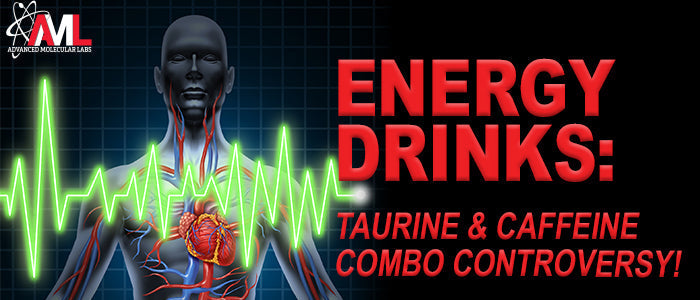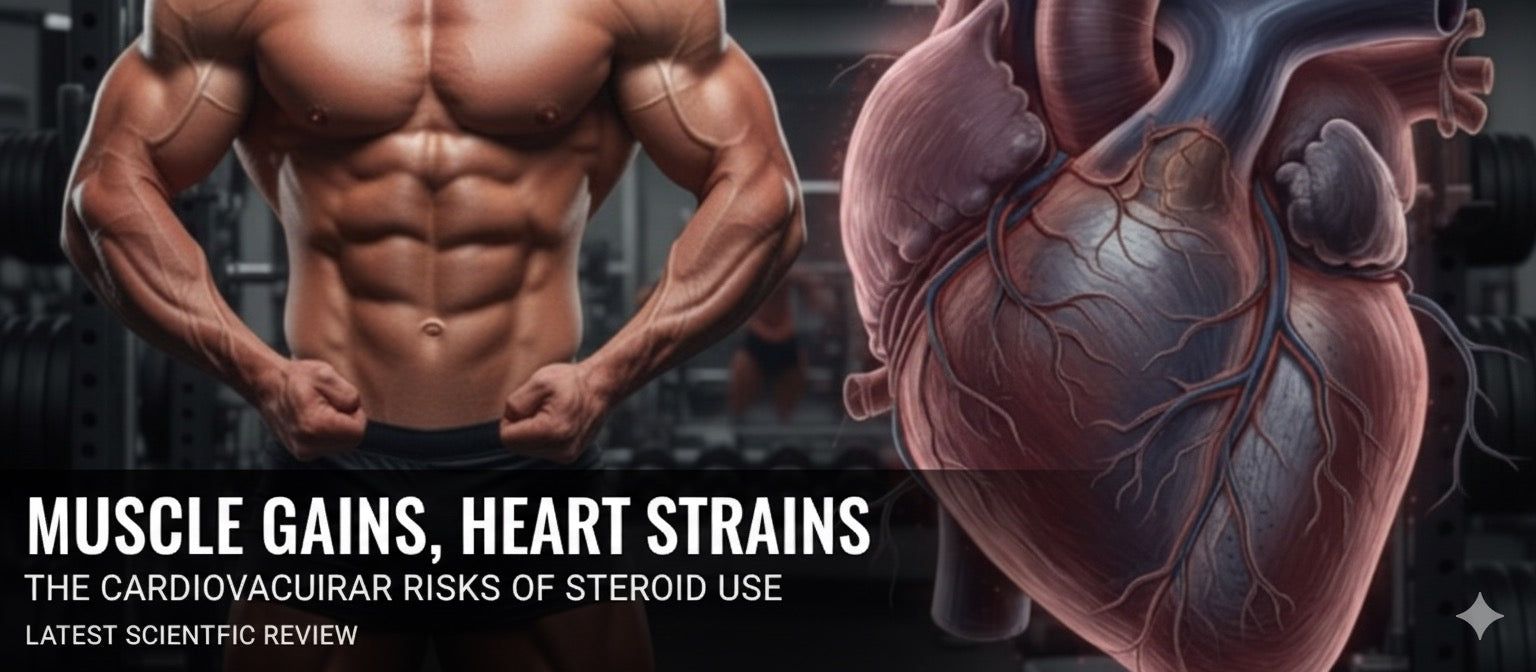


Caffeine and Taurine: Boost Energy with Science
By Michael J. Rudolph, Ph.D.
The consumption of different energy drinks is widespread due to their supposed ability to boost energy and improve exercise performance. Indeed, energy drinks with taurine are one of the most popular supplements among athletes, with approximately 73 percent of all collegiate athletes in the United States consuming them.1 The performance-enhancing effect from these drinks is attributed to several ingredients found in these drinks, including the all-important compounds caffeine and taurine. These ingredients are often combined in energy drinks to provide a synergistic effect, but their individual and combined impacts on performance and health warrant closer examination.
Caffeine and Taurine Independently Strengthen Muscle Contraction
Caffeine is a regularly used performance-enhancing aid typically taken to stimulate the central nervous system, improving alertness and focus for a better workout. Caffeine can also improve exercise performance by directly increasing the cellular concentration of the molecule cyclic AMP (cAMP). An increase in cAMP activates several cellular signaling cascades that trigger the breakdown of fat (lipolysis) and glycogen (glycolysis), providing energy to the muscle while training. Greater cAMP levels also enhance muscular contraction force by increasing calcium levels within the muscle cell. Calcium permits the interaction between the muscle proteins actin and myosin required for muscular contraction. Thus, more calcium causes more actin and myosin interactions, which generates a stronger muscular contraction. Taurine is a non-proteinaceous amino acid that augments a wide array of metabolic and physiological processes, including osmoregulation, mitochondrial function, and energy metabolism, making this compound a potentially formidable ergogenic aid. Taurine also regulates intracellular calcium within muscle like caffeine, giving this compound the capacity to augment muscle contractile force as well.
Combined Caffeine and Taurine Use Does Not Enhance Exercise Performance
Because caffeine and taurine augment muscular contraction in a similar fashion, several studies have examined their combined effects. While some studies show improvements in reaction time, alertness, upper body muscular power, and aerobic and anaerobic performance, others have failed to demonstrate improvements in sprinting ability2, time to exhaustion3, or enhanced peak power.4 Regrettably, many of these studies did not use isolated doses of caffeine and taurine, instead relying on popular energy drinks with taurine, which effectively discounted the possible contribution of other ingredients found in these drinks toward the performance enhancement displayed in each study. To address this major shortcoming in these previous investigations, a more recent study by Ozan et al.5 probed the effect of caffeine and taurine co-ingestion only at doses found in commercially available energy drinks on power output while doing sprints on a bike. Despite the belief that caffeine and taurine enhance exercise performance relative to placebo, the combined intake of caffeine and taurine at doses equivalent to commercial energy drinks did not improve power output during repeat-sprint cycling performances in this study. The simultaneous intake of caffeine and taurine also seemed to trigger greater levels of muscle fatigue, especially at later points within the training protocol. This undesirable performance effect occurred along with increased heart rates and glycolytic metabolic byproducts (e.g., lactic acid), further indicating that caffeine and taurine are not a performance-enhancing combination and may very well diminish physical performance, causing premature fatigue.
Taurine and Caffeine Intake May Trigger Irregular Heartbeat
In addition to the apparent inability of taurine and caffeine to improve physical performance, overconsumption of energy drinks containing caffeine and taurine may also lead to very dangerous health outcomes, such as an irregular heartbeat (cardiac arrhythmia), along with other less severe side effects such as gastrointestinal upset or insomnia6, making the use of these popular energy drinks ill-advised. Several reports link cases of sudden cardiac death to excessive energy drink use even in otherwise healthy individuals. While consuming normal amounts of caffeine does not appear to alter heart function8 or increase susceptibility to irregular heartbeat, taurine use directly or indirectly regulates certain ion channels in the heart, where it has been shown taurine can actually mitigate the risk for an irregular heartbeat.10 In fact, taurine is often regarded as an antiarrhythmic agent, lessening the chance for an irregular heartbeat. However, the amount of taurine found in energy drinks far exceeds the standard amount of taurine typically consumed, promoting the concern for possible adverse cardiac effects mediated by excessive taurine ingestion, especially when combined with caffeine found in the typical energy drink.
Though the exact mechanism triggered by taurine and energy drinks that may induce an irregular heartbeat is not well described, a study by Ellerman et al.11 investigated the electrophysiologic effects of caffeine and taurine on the heart. In this study, rabbit hearts were directly exposed to caffeine or taurine, and then their function was measured by electrocardiography, also known as an EKG. After caffeine treatment, researchers observed a much greater trend toward an irregular heartbeat in the lower chambers of the heart (ventricles) in a dose‐dependent manner - a phenomenon known as a ventricular arrhythmia. A similar exposure of these hearts to taurine in this study also resulted in significantly more ventricular arrhythmias (abnormal heartbeat within the lower heart chambers). Interestingly, there were considerably fewer ventricular arrhythmias with low‐dose taurine exposure, suggesting the higher amounts of taurine preclude the normally antiarrhythmic influence of lower amounts of taurine. Since most popular energy drinks contain a lot of taurine at 1 gram per 250 milliliter can, the antiarrhythmic influence of taurine is likely nonexistent in the standard energy drink. Taken together, these findings uncover the potentially dangerous outcomes promoted by the consumption of energy drinks, strongly indicating against their use at this time.
Glossary of Terms
- Ergogenic - intended to enhance physical performance.
- Ventricular arrhythmia - abnormal heartbeats that originate in the lower heart chamber called the ventricles.
For most of Michael Rudolph's career, he has been engrossed in the exercise world as either an athlete (he played college football at Hofstra University), personal trainer, or as a research scientist (he earned a B.Sc. in Exercise Science at Hofstra University and a Ph.D. in Biochemistry and Molecular Biology from Stony Brook University). After earning his Ph.D., Michael investigated the molecular biological effects of exercise as a fellow at Harvard Medical School and Columbia University. That research contributed seminally to understanding the function of the incredibly important cellular energy sensor AMPK - leading to numerous publications in peer-reviewed journals including the journal Nature. Michael is currently a Senior Scientist working at the New York Structural Biology Center, where he investigates the molecular nature of human illness and disease.
© Published by Advanced Research Media, Inc., 2023
© Reprinted with permission from Advanced Research Media, Inc.
References:
- Froiland K, Koszewski W, Hingst J and Kopecky L. (2004). Nutritional supplement use among college athletes and their sources of information. Int J Sport Nutr Exerc Metab 14, 104-120.
- Wiles JD, Coleman D, Tegerdine M and Swaine IL. (2006). The effects of caffeine ingestion on performance time, speed and power during a laboratory-based 1 km cycling time-trial. J Sports Sci 24, 1165-1171.
- Tipton KD. (2015). Nutritional Support for Exercise-Induced Injuries. Sports Med 45 Suppl 1, S93-104.
- Waldron M, Patterson SD, Tallent J and Jeffries O. (2018). The Effects of an Oral Taurine Dose and Supplementation Period on Endurance Exercise Performance in Humans: A Meta-Analysis. Sports Med 48, 1247-1253.
- Ozan M, Buzdagli Y, Eyipinar CD, Baygutalp NK, Yuce N, Oget F, Kan E and Baygutalp F. (2022). Does Single or Combined Caffeine and Taurine Supplementation Improve Athletic and Cognitive Performance without Affecting Fatigue Level in Elite Boxers? A Double-Blind, Placebo-Controlled Study. Nutrients 14.
- Gunja N and Brown JA. (2012). Energy drinks: health risks and toxicity. Med J Aust 196, 46-49.
- Levy S, Santini L, Capucci A, Oto A, Santomauro M, Riganti C, Raviele A and Cappato R. (2019). European Cardiac Arrhythmia Society Statement on the cardiovascular events associated with the use or abuse of energy drinks. J Interv Card Electrophysiol 56, 99-115.
- Lemery R, Pecarskie A, Bernick J, Williams K and Wells GA. (2015). A prospective placebo controlled randomized study of caffeine in patients with supraventricular tachycardia undergoing electrophysiologic testing. J Cardiovasc Electrophysiol 26, 1-6.
- Voskoboinik A, Kalman JM and Kistler PM. (2018). Caffeine and Arrhythmias: Time to Grind the Data. JACC Clin Electrophysiol 4, 425-432.
- Chahine R and Feng J. (1998). Protective effects of taurine against reperfusion-induced arrhythmias in isolated ischemic rat heart. Arzneimittelforschung 48, 360-364.
- Ellermann C, Hakenes T, Wolfes J, Wegner FK, Willy K, Leitz P, Rath B, Eckardt L and Frommeyer G. (2022). Cardiovascular risk of energy drinks: Caffeine and taurine facilitate ventricular arrhythmias in a sensitive whole-heart model. J Cardiovasc Electrophysiol 33, 1290-1297.




